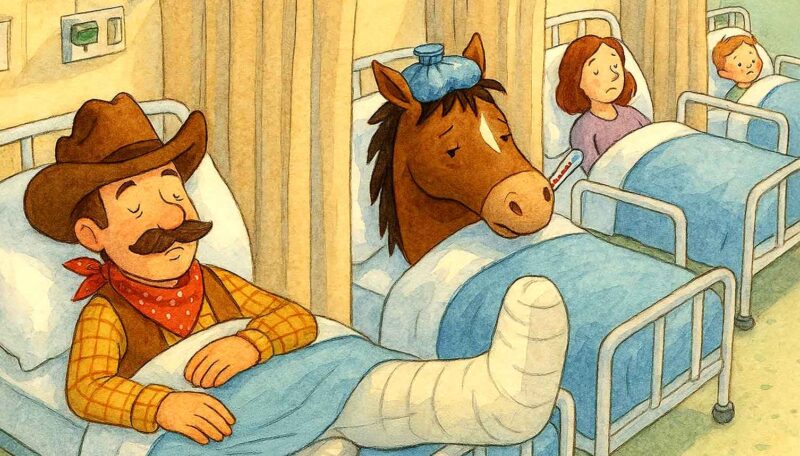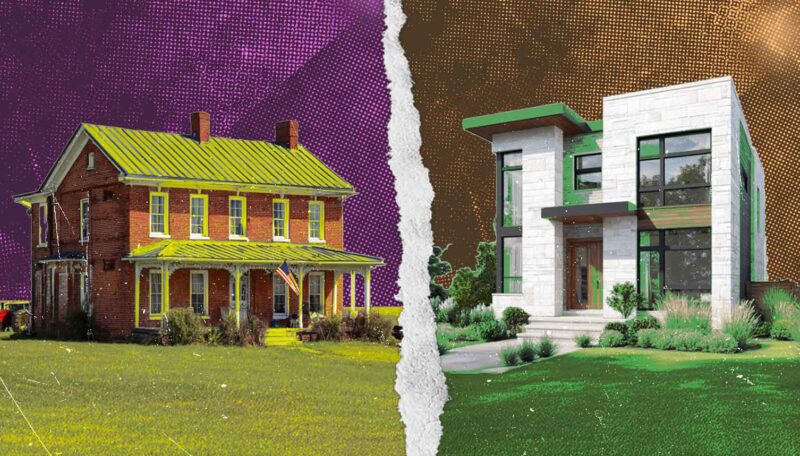Editorial
The Hidden Cause of America’s Mental Health Crisis
Politics is making us sick. Literally.
Every headline, political hot take, and awkward family dinner comes with the same side effect: heart palpitations. Polarization isn’t just a political crisis anymore—it’s impacting our mental and physical health.
We’re marinating in division 24/7. Newsfeeds remind us how awful “the other side” is. Politicians fundraise off our collective outrage. And social media algorithms are like steroids for anxiety—pushing us to click faster, shout louder, and assume the worst of everyone we disagree with.
It’s no surprise that Americans are tired, cynical, and more isolated than ever. Let’s look at how the constant “us vs. them” atmosphere seeps into our minds, our relationships, and even our blood pressure—and what we can do to regain our sanity.
The Mental Health Costs of Polarization
Many of us are living in a low-grade state of political fight-or-flight. Every angry headline or argument online sends stress signals through our brains—heart racing, stomach tight, adrenaline pumping. One study found that people who feel constant political stress show higher rates of anxiety and insomnia.
There’s a palpable sense of political helplessness, which can contribute to depression. When every headline screams dysfunction, it’s easy to lose faith that anything can change. And when that happens, you start to believe your voice doesn’t matter.
When hope dries up, cynicism rushes in to fill the void. We say that everything’s rigged or both sides are terrible. We crack dark jokes. But underneath the mistrust and pessimism often sits something softer: sadness. We grieve for the sense of agency and unity we’ve lost.
Many people fear being judged or attacked for their views, too. You never know if bringing up your stance on an issue or who you voted for will start an argument or a full-blown breakup. So we bottle it up, carrying the tension like an albatross around our necks. Or we retreat into “safe” spaces (both online and in real life), losing contact with those who think differently. Social media makes it worse: algorithms feed us what we already believe, isolating us further in echo chambers.
One of the worst side effects of polarization is how it tears apart relationships. Friendships end. Families stop talking. Coworkers avoid each other. In a recent survey, one in four Americans said they’ve lost a friend over politics, and nearly one in ten said it ended a romantic relationship.
Cutting ties with family and friends and retreating into our social media echo chambers leads to loneliness, which is associated with an increased risk of suicide and self-harm.
Division Hurts More Than Disagreement
It’s worth saying: disagreement is healthy. Democracy literally depends on it. But what we’re dealing with now isn’t healthy disagreement. It’s affective polarization, which is where people don’t just disagree on politics—they actually start to dislike or even hate the people on the other side. We don’t just think our opponents are wrong. We think they’re evil.
That’s a psychological red flag. Humans need belonging like they need oxygen, and when our political identities replace every other source of connection (neighbor, coworker, friend) it suffocates us.
We stop seeing people as people. And when that happens, everyone loses—especially our health.
Connection as the Cure
Toxic polarization is making us sick. But that also means genuine human connection is the antidote.
You don’t need to start a nonprofit or host a summit. You can start small. Listen to someone with a different perspective without interrupting. Ask why they believe what they do before trying to explain your side. Find common ground in shared values—safety, fairness, opportunity.
Or find a community completely unrelated to politics, like a pickleball league or a book club that never finishes the book. Connection to others creates feelings of belonging and love, which are crucial for mental and physical health.
Studies show that volunteering also improves mental health, trust, and social cohesion. When people work together on nonpartisan tasks (e.g. building a park, helping in a food bank), the focus shifts from “you vs me” to “us vs the problem.” That shared identity can soften ideological boundaries. When people build something side by side, they stop seeing each other as labels and start seeing each other as human beings. Shared effort replaces ideology with empathy.
Every act of listening, helping, or building something together is a small dose of medicine—for our democracy and for our own peace of mind.
—Alex Buscemi (abuscemi@buildersmovement.org)
Keep Reading

Texas has the Highest Uninsured Rate in the Country—Why is that?

What We Get Wrong About Homelessness: The Urban vs. Rural Divide
